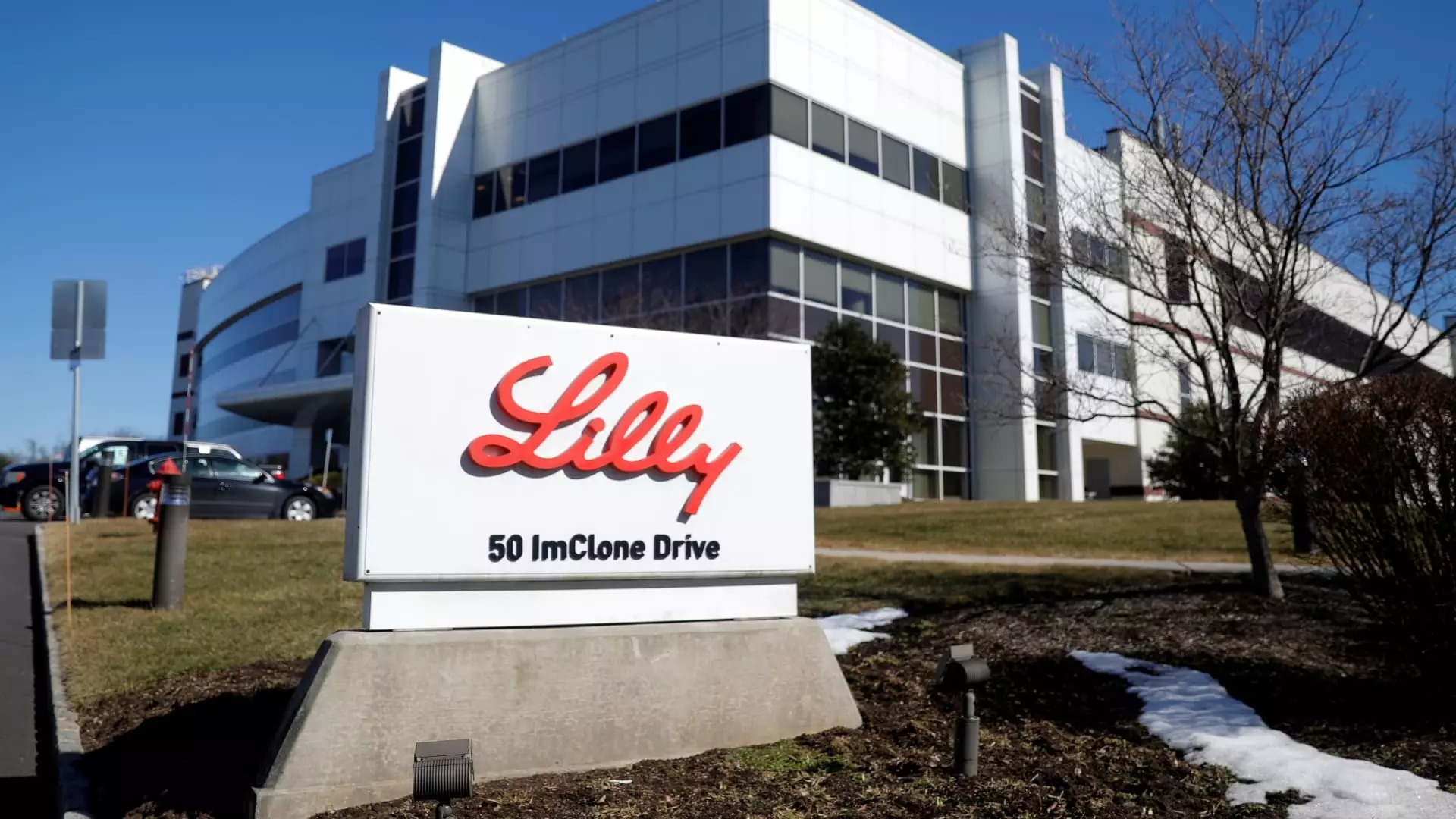Eli Lilly’s success in the weight loss and diabetes treatment market has been nothing short of extraordinary. The demand for their medications, such as Mounjaro and Zepbound, has skyrocketed over the past year, leading to a significant increase in revenue and investor optimism. However, while the company has seen impressive growth under the leadership of outgoing Chief Financial Officer Anat Ashkenazi, there are still challenges and opportunities ahead.
One of the key challenges that Eli Lilly has faced in recent times is the struggle to manufacture enough supply of their treatments to meet the unprecedented demand. This has resulted in nationwide shortages of their drugs, alongside their competitor, Novo Nordisk. Both companies produce weekly injections that fall under a class of drugs called GLP-1 agonists, designed to regulate blood sugar levels and suppress appetite. Despite these challenges, analysts project that the market for these drugs could reach $100 billion by the end of the decade.
To address the manufacturing challenges, Eli Lilly has been heavily investing in scaling up its manufacturing capabilities. Ashkenazi mentioned that the company aims to use the revenue generated from the sales of their products to funnel back into the business for further investment in manufacturing facilities. The company has several manufacturing sites either under construction or ramping up in various locations, including the U.S. and Europe. This investment strategy is crucial for Eli Lilly to meet the growing demand for their medications and ensure they reach the patients who need them.
Another significant barrier that Eli Lilly is working to overcome is the limited insurance coverage for weight loss drugs in the U.S. Some employers and health plans are hesitant to cover GLP-1 agonists due to their high costs, which they fear could strain their budgets. Moreover, insurers have concerns about the duration for which patients remain on these treatments. Despite these challenges, Eli Lilly has made progress in increasing coverage for their medications, with Zepbound now covered by around 67% of commercial insurers as of April 1. The company continues to work on expanding access for the remaining patients.
Looking ahead, Eli Lilly is focused on developing new therapies to address a wide range of health conditions associated with obesity and diabetes. One such initiative involves studying tirzepatide, the active ingredient in Zepbound and Mounjaro, in patients with conditions like fatty liver disease, chronic kidney disease, and heart failure. Additionally, with new guidance allowing Medicare Part D plans to cover obesity treatments for additional health benefits, Eli Lilly and other drugmakers have an opportunity to demonstrate the value of their medications in treating obesity as a chronic disease rather than a lifestyle choice.
Eli Lilly’s success in the weight loss and diabetes treatment market is a testament to their ability to adapt to evolving market demands and challenges. By investing in manufacturing capabilities, overcoming insurance coverage barriers, and focusing on research and development initiatives, the company is well-positioned to continue driving innovation and making a significant impact on patients’ lives. As Eli Lilly transitions to a new phase under new leadership, it will be essential for the company to maintain its focus on patient-centric healthcare solutions and sustainable growth strategies.

Leave a Reply